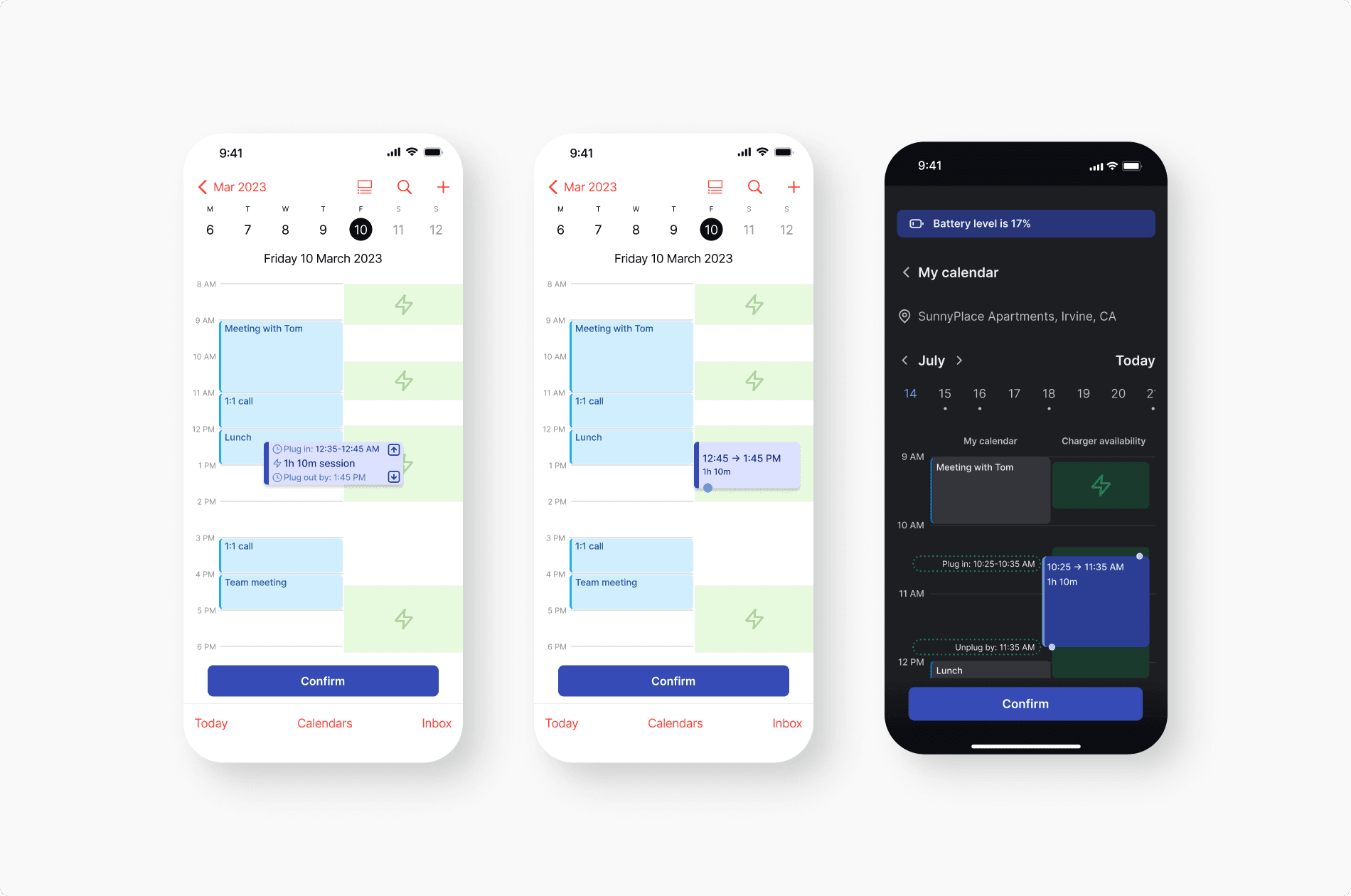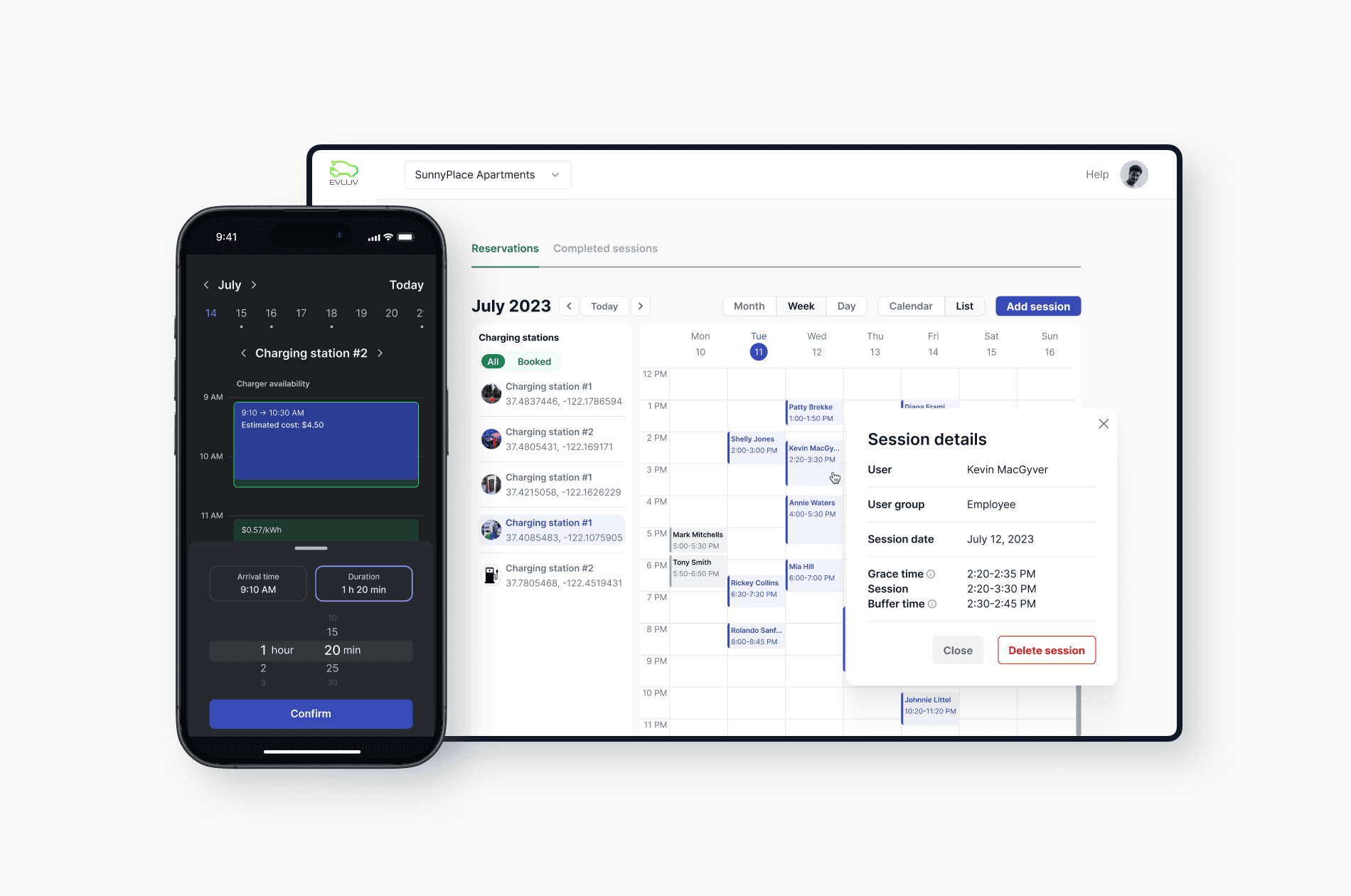Designing a scheduling platform for EV charging from scratch
I led the design process in a small EV startup, from initial ideation and three significant redesigns to the final product launch. This platform includes a web admin app for charging station managers and a mobile app where EV drivers can schedule charging sessions.
Company
EVLUV
Timeline
February 2023 - present
Role
Product design, Product strategy, Design system, Prototyping
Team
Guzel Limpkin, Allan Smith, Roman Royter, Nahuel Dealbera, Daniel Soto
Context
EV cars keep gaining popularity, but there are still not enough charging stations. How can we solve this problem? Who would be our end user and our business beneficiary?
These are the questions that the EVLUV founders, engineering team, and I set out to explore.
Process
Our first business solution was made for Facebook employees. We imagined a campus worker who wanted to charge their car during work hours without waiting for a charger to free up.
I conducted competitor research, created user flows, and identified our first solutions.
My first version of the mobile app was straightforward: the user picks their campus and parking lot, sets the time and duration they need, and EVLUV reserves an available station, sends a reminder, and navigates to the exact spot.
It turned out that this was not a viable business model. At this point, we started to explore other markets, and I worked on reimagining our products. The second iteration of the apps was based on collaborating with other charging companies, like ChargePoint, and adapting our software to their charging stations. Eventually, I created a platform compatible with our own charging stations. I also redesigned the booking flow for all potential users: office workers, tenants at apartment complexes, and visitors at busy public places.
Iterations
My designs evolved to accommodate business goals and user needs. I added information density to map pins and cards to show users more details they cared about without taking up more space.
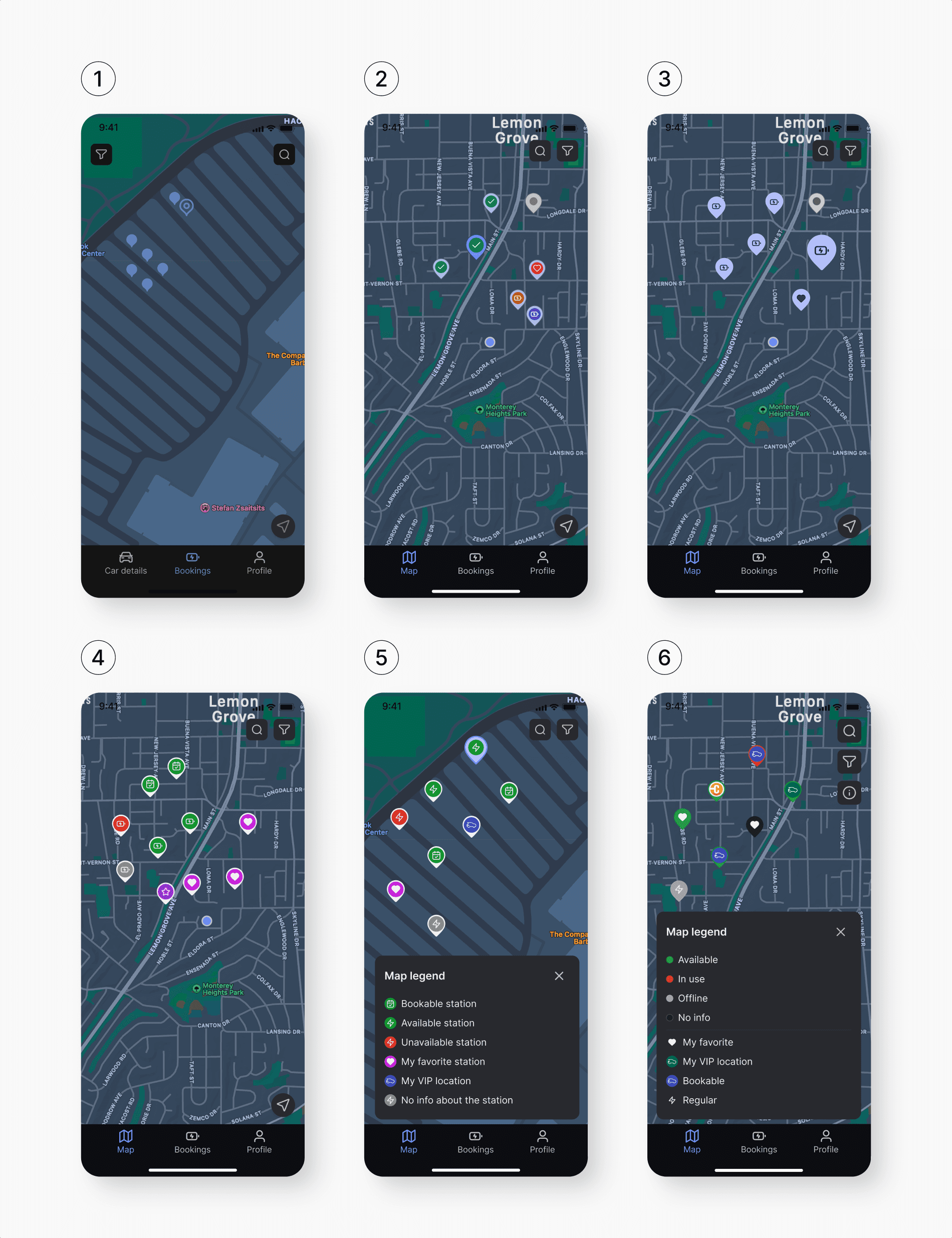
As a result of this iterative process, I created a mobile app where EV drivers could find a charging station they need, charge now, or schedule a session later by picking an available time block for a specific station.
I also optimized the app for a more pleasant user experience:
made it easy to access favorite stations, upcoming sessions, and rewards
created a flow to request access to private charging stations
made a flow for connecting RFID cards
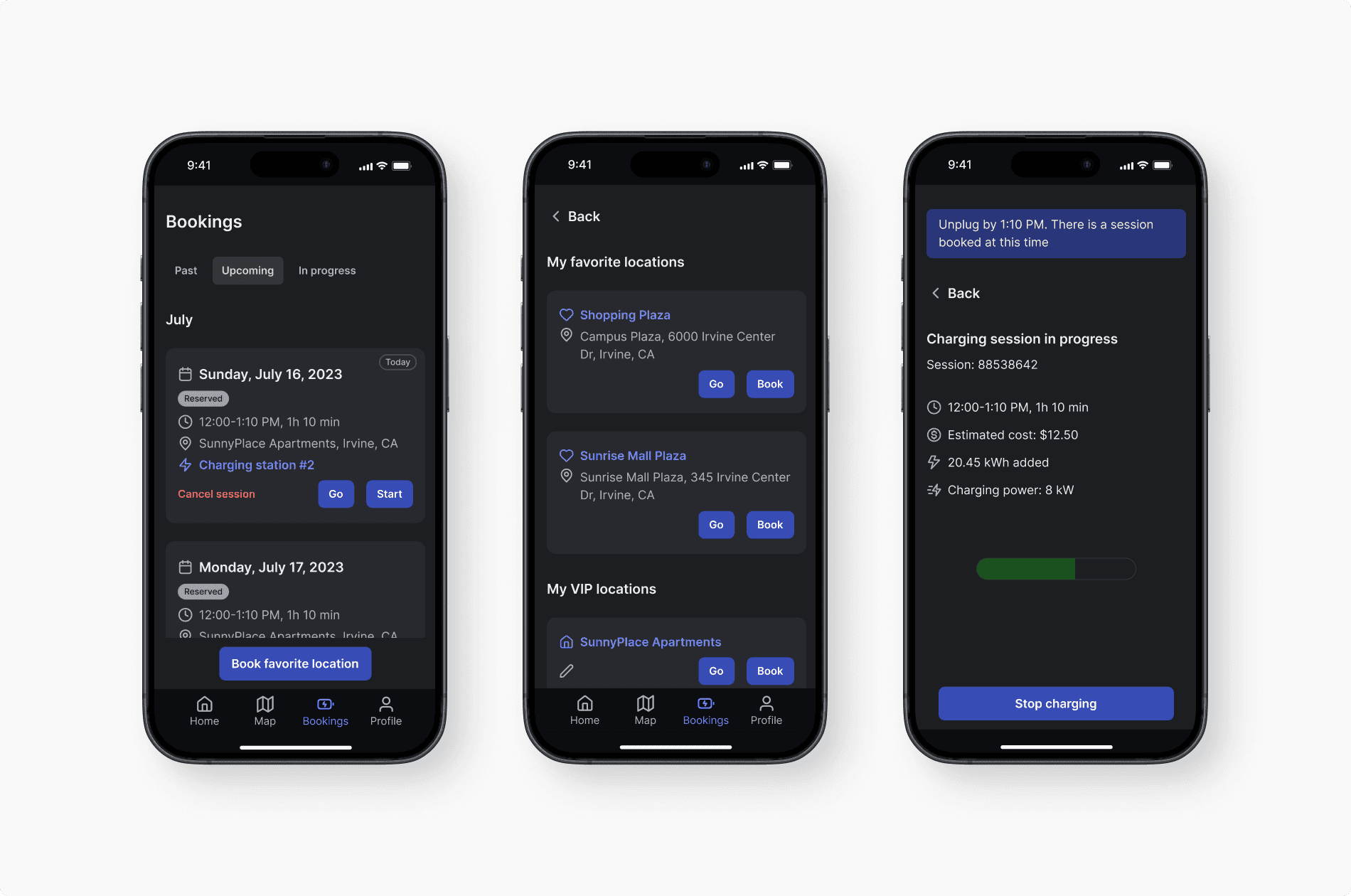
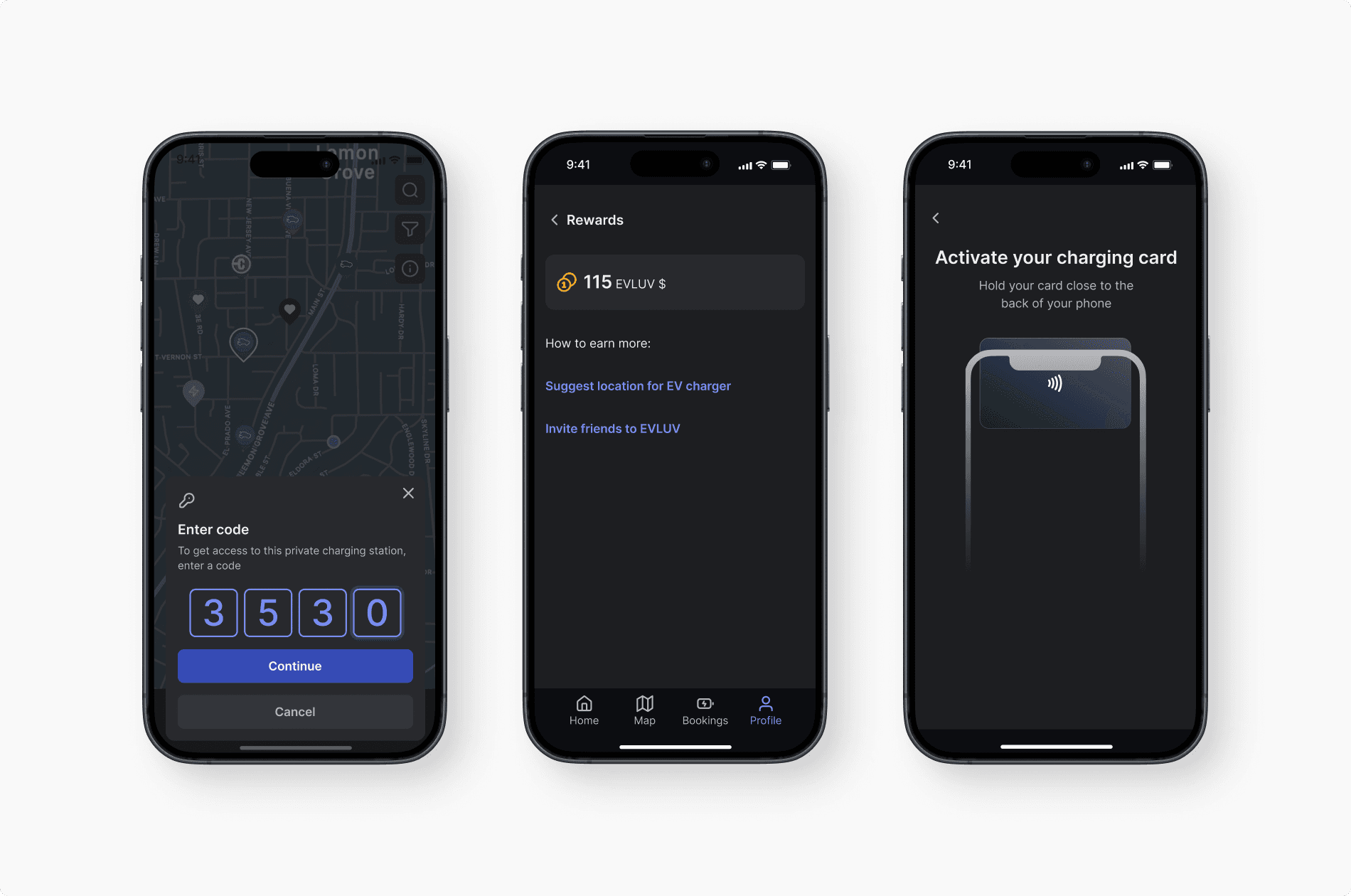
I built a management web app for business owners to create and manage different policies, locations, charging stations, sessions, and users. This app also went through a couple rounds of iterations.
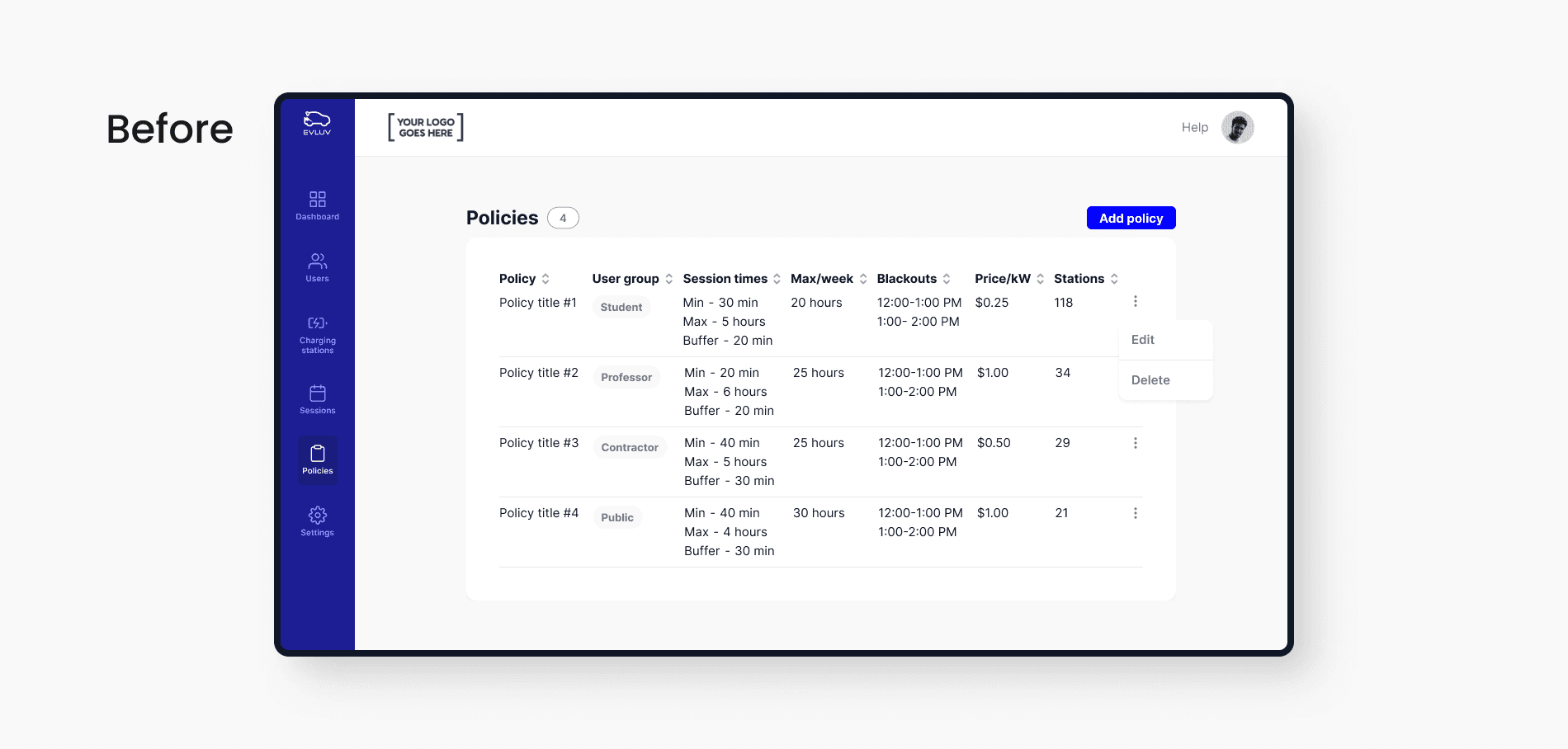
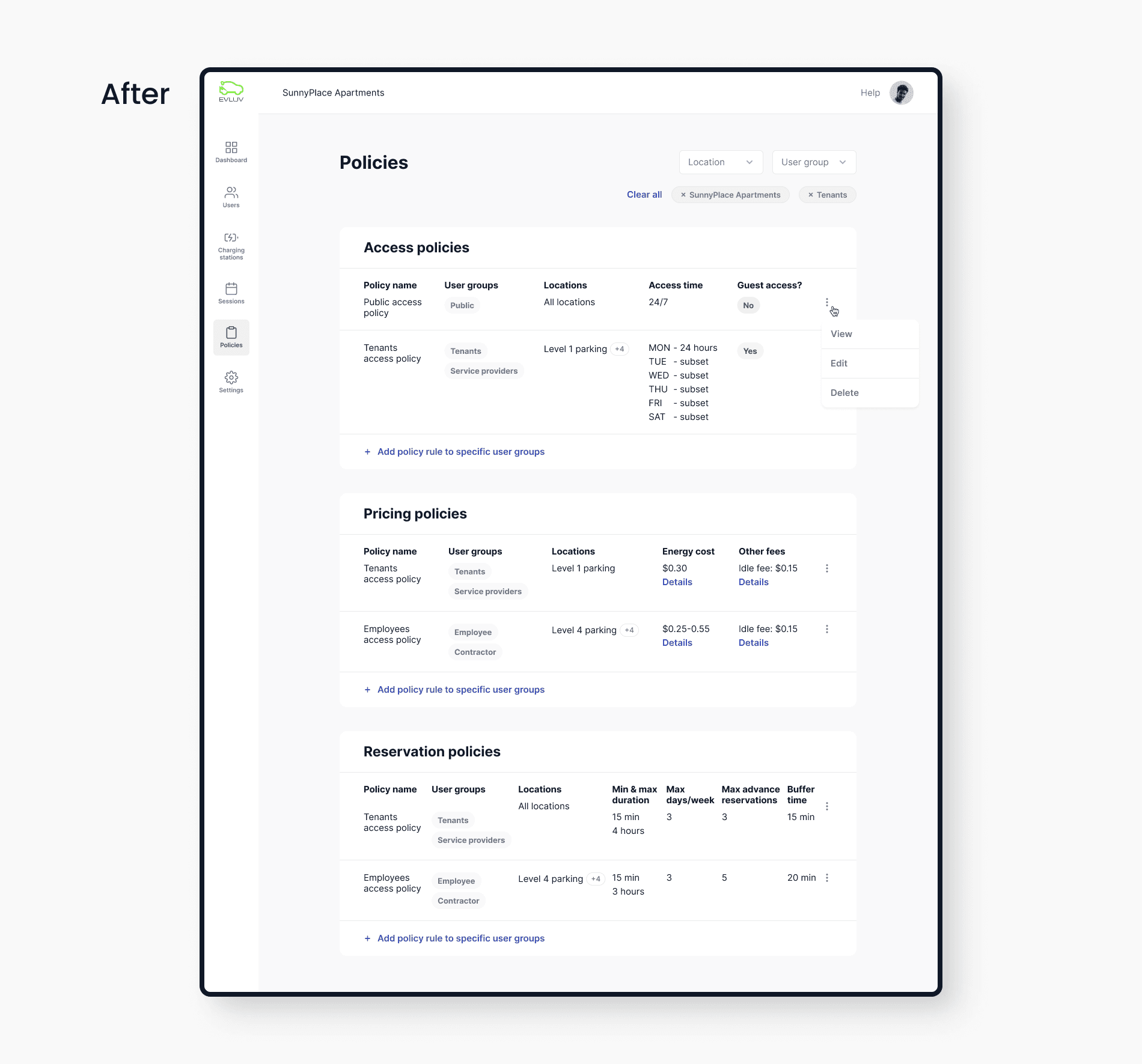
Challenges
I worked in a high-paced environment where product market fit was not yet found. Creating iterations due to drastic business goal changes made me face several challenges. I needed to:
redesign parts of the apps, create new features to meet new objectives
cohesively bring new designs into existing flows and apps' structure
document and annotate the changes to help developers understand and successfully ship them
keep track of all changes, update the design system, components, and Figma file to reflect new functionalities
These challenges required flexibility, focus, and problem-solving. However, I also found that I could reuse many screens, components, and assets and quickly adapt my design system.
In June 2023, Figma released a Dev Mode, which helped us monitor our changing products and effectively ship them.
Outcome
We successfully launched our products and are now testing them with early customers. We also plan to test our software on a hardware charging station, collect feedback and data, and continue iterating our charging platform.
What I learned
Working at EVLUV, I learned to be flexible and effectively adapt products to changing business models, and I improved my communication skills.
One of the highlights of this project was the collaboration. I enjoyed sparring with developers to discuss design changes, and implementation costs and constraints.
I especially loved ideating the two-calendar booking flow with the CTO, allowing users to find the perfect spot between their busy working schedule and charging station availability. This feature was planned for later iterations and was not part of this MVP. Working on it was a rewarding and engaging experience that boosted my design skills.
